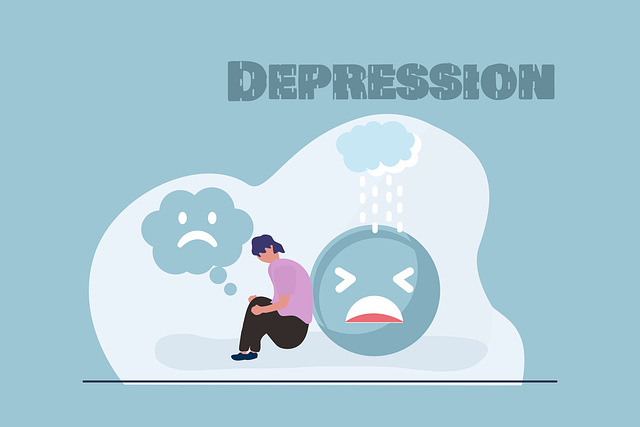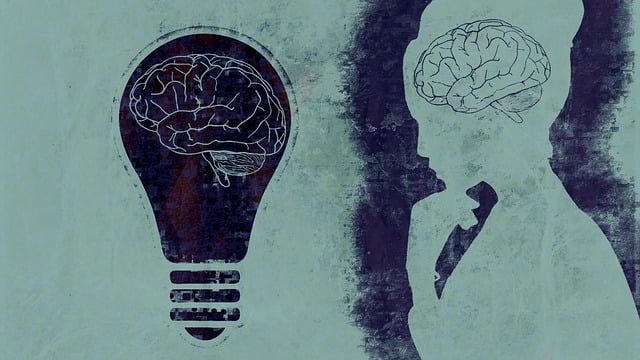Cultural sensitivity is key to effective mental healthcare in diverse Colorado Springs communities, where therapists must understand cultural influences on mental health. By tailoring approaches, building trust through empathy, and incorporating relevant exercises like Mental Wellness Journaling, they create safe spaces for clients from various backgrounds. Overcoming language and cultural differences is crucial, as it enhances communication, accurate assessments, and overall therapy effectiveness. Emotional intelligence enables therapists to address systemic barriers, fostering trust and promoting inclusive practices in Colorado Springs' mental healthcare. Integrating cultural sensitivity into stress management improves outcomes and strengthens therapist-client relationships.
In the diverse landscape of Colorado Springs, cultural sensitivity in mental healthcare is paramount. This article explores the nuances of providing culturally responsive therapy, addressing critical challenges faced in this vibrant community. From understanding the foundational principles of cultural sensitivity to implementing effective strategies for stress management practices, we delve into ways to enhance care. By integrating cultural awareness, therapists can better serve clients from various backgrounds, ensuring inclusive and transformative therapy experiences tailored to Colorado Springs Stress Management Therapy needs.
- Understanding Cultural Sensitivity in Mental Healthcare
- Challenges and Barriers in Providing Culturally Responsive Therapy in Colorado Springs
- Strategies for Integrating Cultural Sensitivity into Stress Management Practices
Understanding Cultural Sensitivity in Mental Healthcare

Cultural sensitivity is a cornerstone of effective mental healthcare practice, especially in diverse communities like Colorado Springs. It involves recognizing and appreciating the unique cultural backgrounds, beliefs, and values of each individual seeking therapy. This awareness goes beyond simply being aware of different cultures; it requires understanding how these factors can influence an individual’s experience of stress, mental health issues, and their responses to treatment. For instance, what may be considered a healthy coping mechanism in one culture could be perceived differently in another, highlighting the importance of tailoring therapeutic approaches to align with cultural norms.
In the context of Colorado Springs Stress Management Therapy, mental healthcare professionals must be adept at fostering empathy and building trust by incorporating strategies such as Mental Wellness Journaling Exercises and Confidence Boosting activities that resonate with diverse populations. By offering Guidance tailored to individual cultural contexts, therapists can create a safe space for clients to explore their mental wellness journeys openly. This approach not only enhances the effectiveness of therapy but also promotes deeper connections, ensuring that every client receives compassionate and culturally sensitive care.
Challenges and Barriers in Providing Culturally Responsive Therapy in Colorado Springs

Providing culturally responsive therapy in Colorado Springs presents unique challenges due to the city’s diverse demographic makeup. With a growing population from various ethnic and cultural backgrounds, mental healthcare practitioners must navigate intricate social, economic, and historical factors that influence an individual’s psychological well-being. One significant barrier is the potential language and cultural differences between therapists and clients, which can hinder open communication and accurate assessments. Effective Colorado Springs stress management therapy requires professionals to adapt their practices, incorporating tools for emotional regulation and mood management tailored to each client’s cultural context.
Emotional intelligence plays a pivotal role in overcoming these challenges. Therapists must possess the ability to recognize and appreciate diverse emotional expressions, cultural norms surrounding mental health, and the impact of systemic barriers on an individual’s emotional well-being. By fostering environments that encourage open dialogue and understanding, therapists can build trust with clients from different backgrounds. This approach not only enhances therapeutic outcomes but also promotes more inclusive practices in Colorado Springs’ mental healthcare landscape, ensuring better access to care for all residents.
Strategies for Integrating Cultural Sensitivity into Stress Management Practices

Integrating cultural sensitivity into stress management practices is paramount for mental healthcare professionals in Colorado Springs Stress Management Therapy. It involves recognizing and respecting diverse cultural beliefs, values, and customs that shape individuals’ perceptions of health, illness, and healing. To achieve this, therapists can employ strategies such as actively listening to patients’ narratives, adapting therapeutic techniques to align with their cultural frameworks, and fostering an environment of trust and mutual understanding. By doing so, they create a safe space where clients feel heard and respected, enhancing the effectiveness of stress management interventions.
This approach is not merely about adding cultural considerations; it’s about tailoring care to meet individuals’ unique needs. For instance, incorporating elements from Mind Over Matter principles can be culturally sensitive, as these techniques empower patients to manage stress through mental and emotional strategies. Crisis intervention guidance, another critical component, should also be informed by cultural sensitivity to ensure that interventions are appropriate and accessible to all clients, regardless of their background. This holistic integration of cultural sensitivity not only improves mental wellness outcomes but also builds stronger connections between therapists and their diverse clientele.
In addressing mental healthcare in Colorado Springs, acknowledging cultural sensitivity is no longer a consideration but an imperative. The challenges and barriers faced in providing culturally responsive therapy underscore the need for professionals to embrace diversity and adapt their practices. By integrating strategies that honor varied cultural backgrounds, therapists can create inclusive environments that enhance stress management for all clients. This approach not only improves therapeutic outcomes but also ensures equitable access to mental healthcare services in Colorado Springs and beyond.













